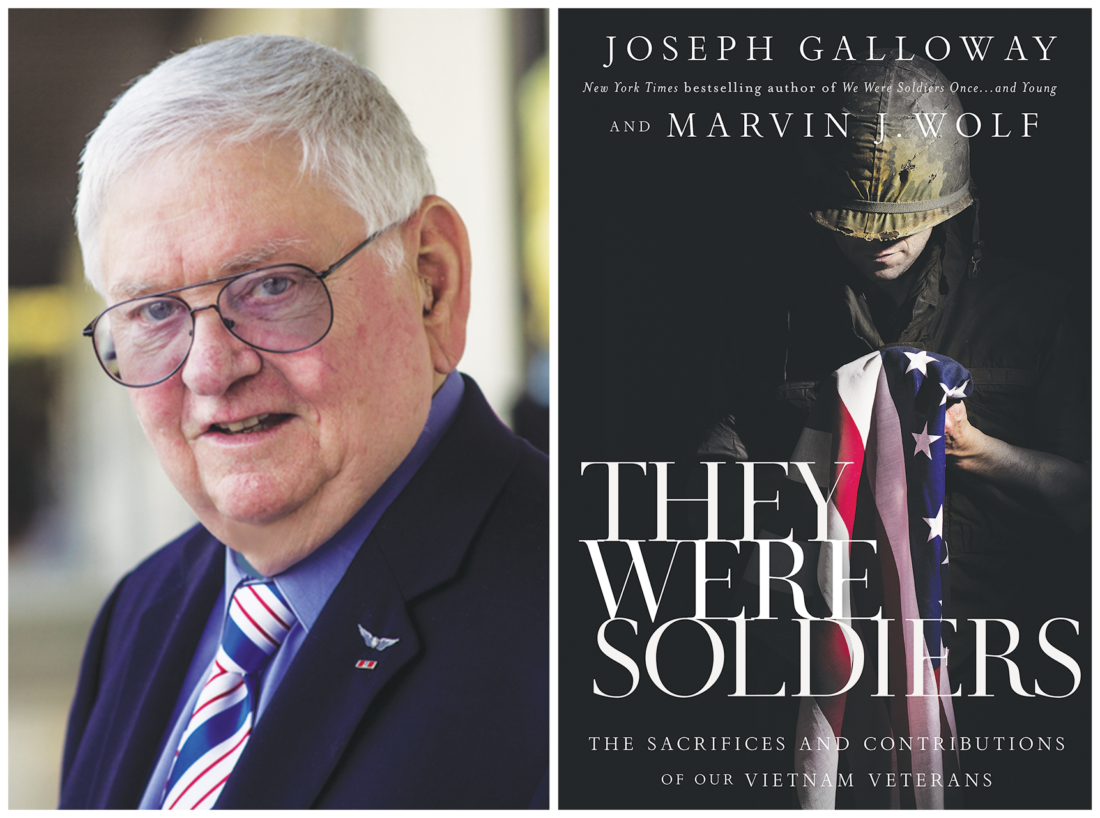Prior to moving to Asheville in 2016, author and Vietnam veteran Marvin J. Wolf read Tom Brokaw’s 1998 bestseller, The Greatest Generation, a cultural history about the Great Depression and World War II. Wolf enjoyed the book but took issue with the title Brokaw bestowed upon the American cohort born between 1901-27.
“It was the same men and women … of the Greatest Generation that sent me and almost 3 million of my brothers and sisters to Vietnam to fight a war they knew we had no chance of winning,” Wolf asserts. The defeat, controversies and generalizations about the U.S. presence in Vietnam, Wolf continues, has been a burden that his generation shoulders to this day.
“Most of the guys that I knew who came back from Vietnam had a very rough go,” Wolf says. “Unlike our fathers who served in World War II or in the Korean War, we were not welcomed back. … The common consensus was that we were a bunch of losers. That we had been traumatized by the war, and that we were drunks and drug addicts, and that we beat our wives.”
Challenging these long-held assumptions, Wolf recently co-authored They Were Soldiers: The Sacrifices and Contributions of Our Vietnam Veterans with friend and former war correspondent Joseph L. Galloway. The book, which was released on May 12, features in-depth profiles based on interviews with 48 veterans, including filmmaker Oliver Stone (Platoon) and retired four-star Gen. Colin Powell.
However, Wolf notes, the majority of the individuals he spoke with for the project are far from household names. “I spent months looking for Vietnam veterans who had unusual stories to tell,” he says.
Among those figures is Weaverville resident Mike Hebert. In 1972, he worked as a midshipman on the USS Newport News, which supplied gun support for U.S. Marines and South Vietnamese units. A member of the Navy Reserve, Hebert’s time on the cruiser was limited to the summer between his junior and senior years of college. Yet within that brief period, Hebert’s crew was awarded the Presidential Unit Citation for its engagement in combat during a raid of Haiphong harbor.
Like the 47 other profiles featured in They Were Soldiers, the majority of Hebert’s chapter explores his post-Vietnam career. “I wanted to concentrate as much as possible on what these soldiers did after they got out of the Army,” Wolf explains. In Hebert’s case, he went on to become a spy for the CIA, working in the Soviet Union during the Cold War and later running counterterrorism operations in West Africa. He retired from the CIA in 2002.
Due to COVID-19 restrictions, regular book-signing events have been put on hold, Wolf says. But, like many people during the current health crisis, he and Galloway have embraced online platforms and phone interviews as a way to promote their book’s message. Because while Brokaw crowned the soldiers of World War II as the leading members of the Greatest Generation, Wolf contends those Vietnam veterans featured in They Were Soldiers are living proof that his cohort “is every bit as worthy of respect and admiration as the generations that preceded us.”




Your uncle who has been my BFF since 2nd grade saw the worst of it in the Nam and it showed for a few years after he came back. I was a commissioned officer (via ROTC) in the USAR from 68 to 82 but blessedly I never made it to Vietnam. It was obvious to most of us junior officers (who had 1/2 brain) that the Johnson and Nixon admins were not fighting the war to WIN and we thought it was a stupid waste of life to fight if you don’t have the will to do WHATEVER it takes to win .
I’ve always felt that if the anti-war progs of my and your uncle’s generation had based their argument on “This war, as is being by the Johnson admin in 67-68 , is unwinnable. It is not worth losing another American life” .. Then a coalition (no war ever or don’t fight unless you are willing to win) could have possibly stopped it ( That is how I felt going back to my ROTC days).. Instead the progs called us in the military racist baby killers :-(
Wondering if the author found John Patrick McAfee (of Hendersonville) among his Vietnam vets to feature? If not, he’s a worthy follow up, one of the most evolved Vietnam vets I’ve had the pleasure of knowing.
“Slow Walk in a Sad Rain” is his book about a tour on the Cambodian border as a Green Beret/Special Forces combatant and the novel way a couple of the cannon fodder soldiers got out of the country.